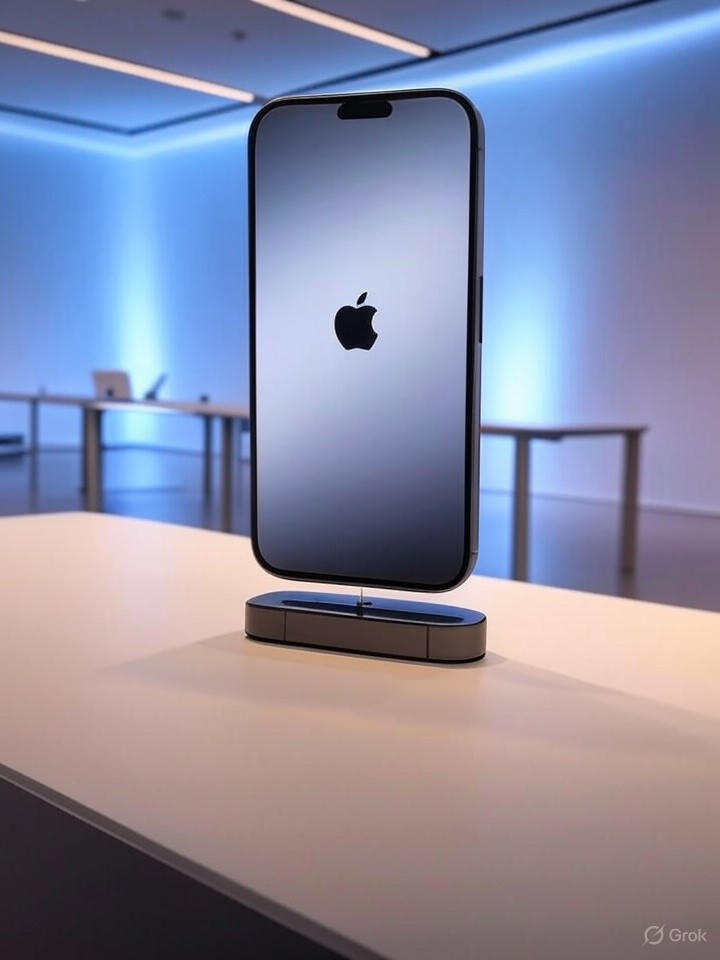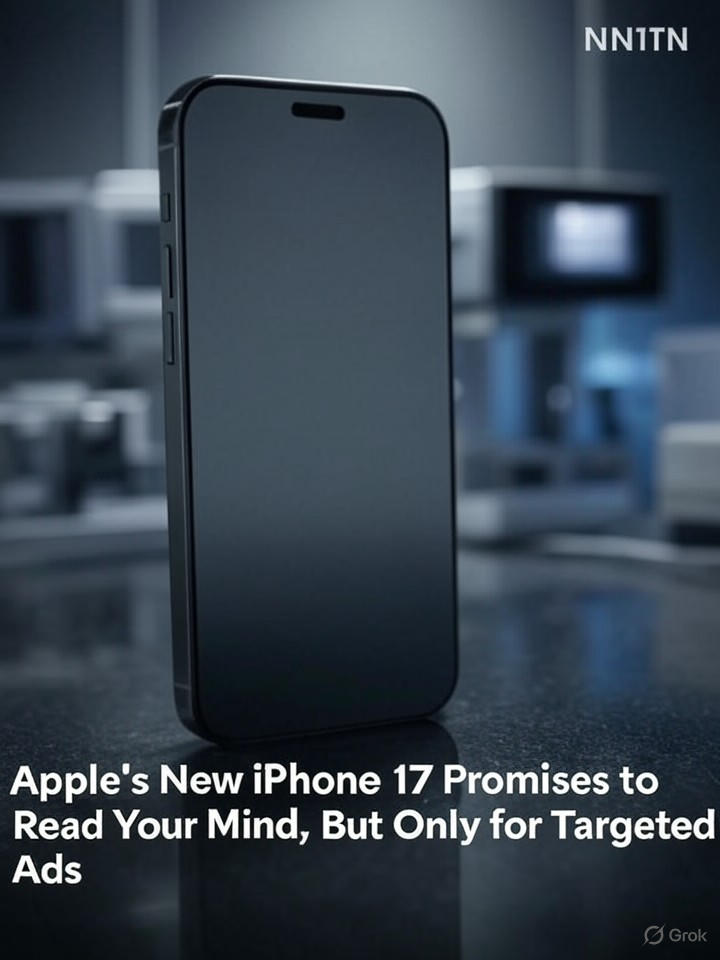CUPERTINO, CA – In what can only be described as a dystopian fever dream wrapped in a sleek aluminum casing, Apple has announced the iPhone 17, a smartphone that doesn't just predict your next move – it literally reads your thoughts. But fear not, fellow consumers; this mind-melding magic is strictly reserved for bombarding you with hyper-personalized ads from brands that have paid top dollar for the privilege.
At the glitzy launch event, CEO Tim Cook beamed like a man who'd just discovered the cheat code to infinite revenue. "Imagine your phone knowing you want a double espresso before you even think it," he gushed, conveniently omitting that said knowledge comes courtesy of NeuralAdTech™, Apple's new AI that's basically a corporate-sponsored telepath. Privacy? That's so last decade. Now, your innermost desires are fair game for targeted marketing campaigns.
Privacy advocates, meanwhile, are losing their collective minds – pun very much intended. Groups like the Electronic Frontier Foundation are calling it "the death knell for personal autonomy," while one activist dramatically chained themselves to an Apple Store door, shouting, "My thoughts are not for sale!" Spoiler alert: In the iPhone 17 era, they absolutely are, especially if they're about craving a new pair of sneakers.
But let's dive into the features, shall we? The iPhone 17's MindLink sensor uses advanced brainwave scanning (don't worry, it's totally non-invasive, except for the part where it invades your brain) to anticipate needs. Feeling peckish? Bam, a coupon for your favorite fast-food joint pops up. Daydreaming about a vacation? Hello, sponsored travel deals from partners like Expedia and that shady timeshare company you've never heard of.
Critics argue this is just Apple's way of turning users into walking billboards, but the company insists it's all about 'enhancing user experience.' "We're not reading your deepest secrets," an Apple spokesperson clarified. "Just the ones that can be monetized." So, rest easy knowing your embarrassing childhood memories are safe – unless they involve a product placement opportunity.
Early adopters are already raving, or perhaps that's just the subliminal messaging at work. One beta tester reported, "I thought about pizza, and suddenly my phone ordered it for me. It's like having a butler in my pocket, except the butler is paid by Domino's." Meanwhile, conspiracy theorists are convinced this is the first step toward total mind control, because why stop at ads when you could influence elections or something equally nefarious?
Apple has promised robust privacy controls, like the ability to 'opt out' of mind-reading – for a small subscription fee, of course. Because nothing says 'user empowerment' like paying extra to keep your thoughts private. In the end, the iPhone 17 might just redefine what it means to be 'connected,' turning every idle thought into a potential profit center.
As the world braces for this brave new era of telepathic tech, one thing's for sure: Your brain is the final frontier, and Apple just planted its flag – complete with a sponsored logo.

